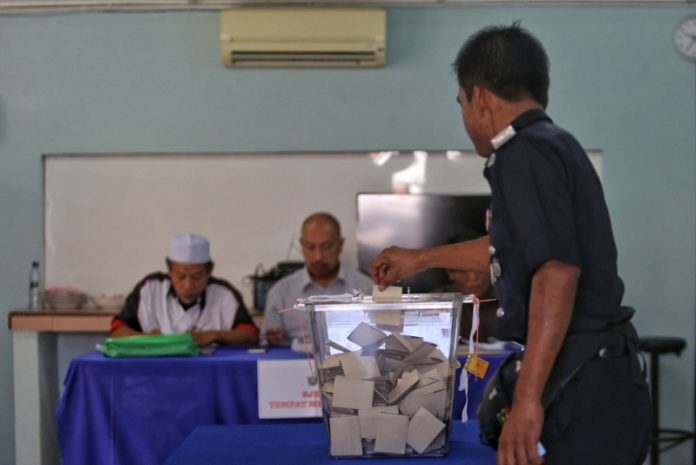Malaysians will vote on Wednesday 9 May 2018. Election Commission Chairman Tan Sri Mohd. Hashim Abdullah, announced the date today in Putrajaya. He also announced that nomination for the 14th general election is on Saturday April 28 and early voting, on Saturday May 5. “The campaign period has been set for 11 days, from Nomination Day to 11.59 pm on Tuesday May 8,” he said at a press conference. Tan Sri Mohd. Hashim said the EC would use the electoral rolls as of the fourth quarter of 2017 containing the names of 14,940,624 electors for the polls. Of the number, 14,636,716 are regular electors, 300,255 early voters comprising military personnel and their spouses and police personnel and 3,653 absentee voters who are overseas. He added that the EC would provide 8,989 premises as polling centres which would have 28,995 polling streams. Observers from 14 countries from ASEAN, the Commonwealth, Asia and Europe will be invited to observe GE14. Tan Sri Mohd. Hashim said this is apart from the 14 local non-governmental organisations and university representatives that will also be observing the polls. “Other than those who have been appointed and invited, no other organisation or individuals will be recognised. “The observers will be allowed to go to nomination centres, early voting centres and counting stations,” he said.
Malaysia’s Election Offences Act 1954 makes it compulsory for employers to give employees time off to vote in the country’s general election. According to the Election Offences Act 1954 document on the Attorney General’s Chambers of Malaysia website, employers must give employees a reasonable amount of time away from work to vote on polling day, without pay deduction, or penalty. “Every employer shall, on polling day, allow to every elector in his employ[ment] a reasonable period for voting, and no employer shall make any deduction from the pay or other remuneration of any such elector or impose upon or exact from him any penalty by reason of his absence during such period. “Any employer who, directly or indirectly, refuses, or by intimidation, undue influence, or in any other manner, interfere with the granting to any elector in his employ[ment], of a reasonable period for voting, as in this section provides, shall on summary conviction be liable to a fine of five thousand Ringgit or to imprisonment for one year,” the document showed.




















